The drive and motivation to provide for ourselves and families is a huge part of the successes to be had here in the good ole' USA. Sometimes we can get lost in our ambition and lose the motivation to demonstrate honest respect for one another. I'm not talking about politeness. I'm talking about respect, and there are some habits and customs of Japanese culture that demonstrate some next-level ideas.
Some terms often used to describe the Japanese culture would include humble, traditional, mindful, orderly, etiquette, and community. Obviously there are a wide range of behaviors demonstrated by individuals in all cultures. We know there are amazing people doing amazing things all over this planet and some doing far less everywhere too. This is an opportunity to point out some ideas that contribute to a powerfully positive environment.
Social norms are passed down through history. They reflect the overall views and standards of our communities. Japanese culture is steeped in its history and certain habits and behaviors have a massive impact on how they treat each other and the world at large.
Cleanliness in public spaces
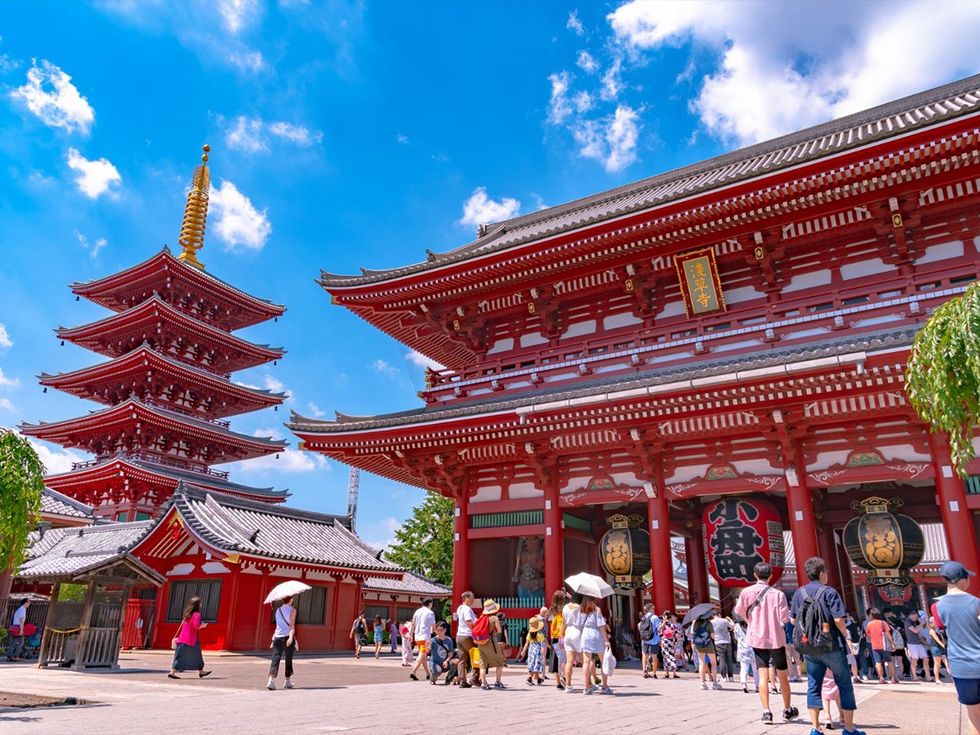
One of the first things to notice about Japan is how clean all the public spaces are. At the same time there is a significant lack of outdoor trash bins. Societal harmony is an important value to the Japanese people. Keeping a clean environment is a communal concern. Holding a candy wrapper or empty water bottle until you get home is the established norm. Often people carry an extra paper or plastic bag to accomplish this task.
Removing shoes indoors
Most people in Japan will take their shoes off when entering their houses. There is often a dedicated space for this. Many places you might come across in public areas might ask for you to remove your shoes as well. Cleanliness is held in very high regard and shoes bring in the soil and dirt from the outside. Removing a person's shoes shows respect to the people and the place hosting you.
Bowing
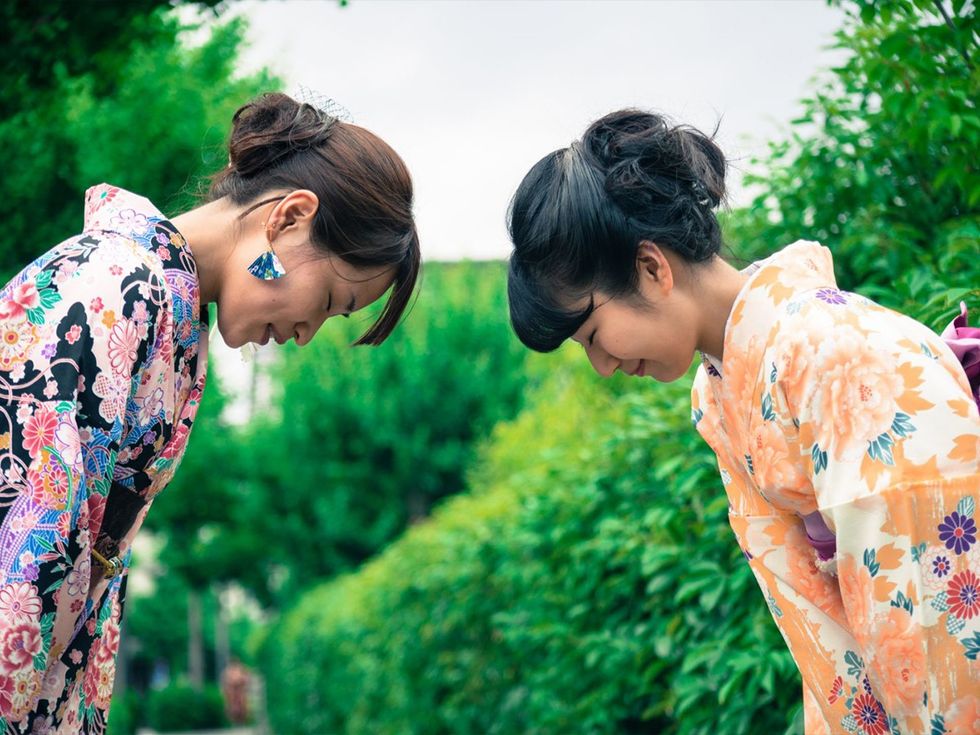
There are different types of bows to demonstrate different purposes. Bows exist for a morning greeting all the way to bows for status recognition. In fact, it is the preferred greeting over a handshake. Surprisingly you might see someone bowing over their phone conversation. Companies train employees in the proper way to bow and greet customers. Bowing is a form of respect. It is considered polite. And signifies trust by showing vulnerability with an exposed head and adverted eyes.
Punctuality
Being on time is more than a basic courtesy. With a history heavily influenced by the teachings of Confucianism, order, respect, and social duty have made a strong and lasting impression upon the people. Not wasting another person's time is a deeply rooted, cultural value. Things like the bus and train run on a very tight schedule. When services are running late even by a little, there are announcements and apologies.
Apologize often and sincerely
Japan literally has an apology culture. This is not necessarily an admittance of fault. It's used to regain trust, to be humble, and to show politeness. This demonstration could be perceived as preserving honor or 'saving face.' Like bowing there are many different words used to show various versions of an apology from, 'I was inexcusable' to an 'excuse me.'
Minimal interrupting during conversations
Talking over each other seems to be the social norm in the states these days. However, a great way to show politeness is remaining silent in a conversation until an opening to speak occurs. Sometimes remaining silent can be intentional to demonstrate contemplation and allow time for a person to think about the appropriate response. Interjections are a cultural norm such as the 'yes' or 'huh' we might use in english. The idea being to demonstrate active listening and respect.
Presenting and receiving items with two hands

A two handed exchange demonstrates a deliberate act and shows attentiveness. Often people will include a slight bow to add status or significance. One redditor commented on the practice, "Using one hand to give something is the equivalent of throwing it to them."
Not talking on the phone in public transit
With the tradition of avoiding the inconvenience of others, it is considered extremely rude to talk on the phone when on a train. In general people are aware of where they use their phones in public as drawing attention to oneself is undesirable. People may watch videos or text, but with headphones. Japanese people are always aware of how they are behaving and the impact that has on their surroundings.
from nextfuckinglevel
Japan tries to be a harmonious society. Often putting the needs of the community above one's own personal wants and gains. They try to avoid making a fuss because having a negative impact on the people around them goes against the established social norms of their community. Being courteous and polite is important for most cultures. The Japanese people have just taken it next-level.





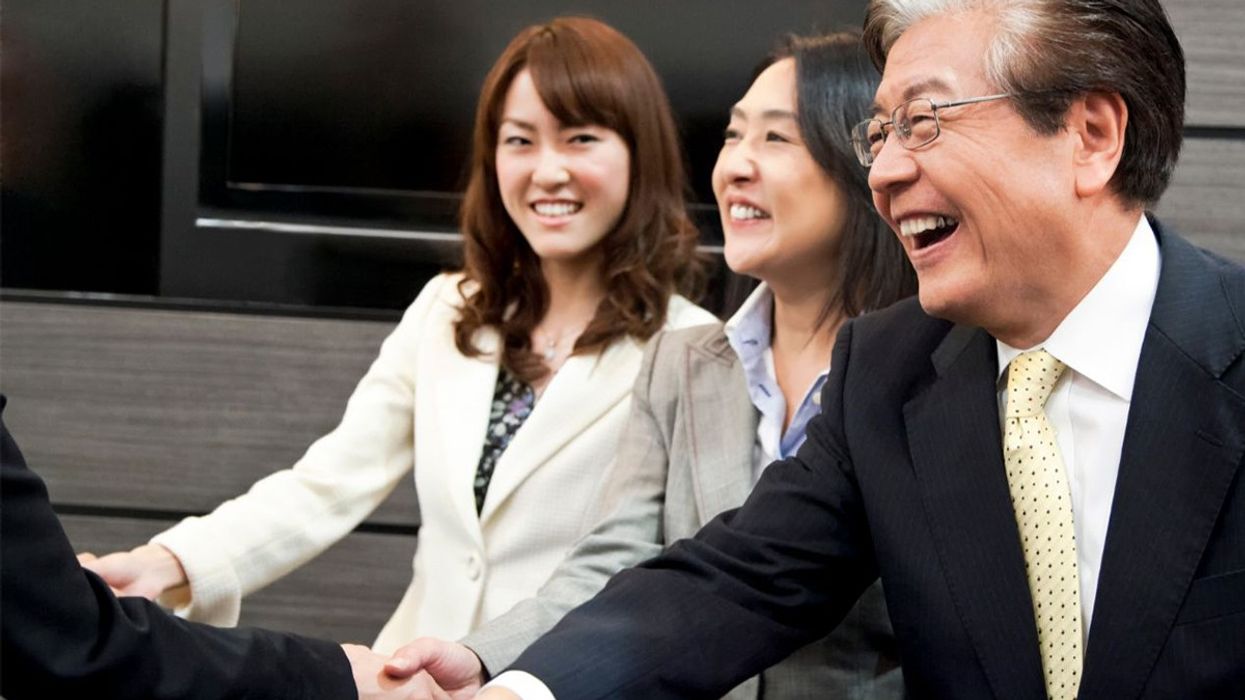












 A high school senior shows how to unlock a magnetic pouch that holds her smartphone at University High School Charter in Los Angeles in March 2025.
A high school senior shows how to unlock a magnetic pouch that holds her smartphone at University High School Charter in Los Angeles in March 2025.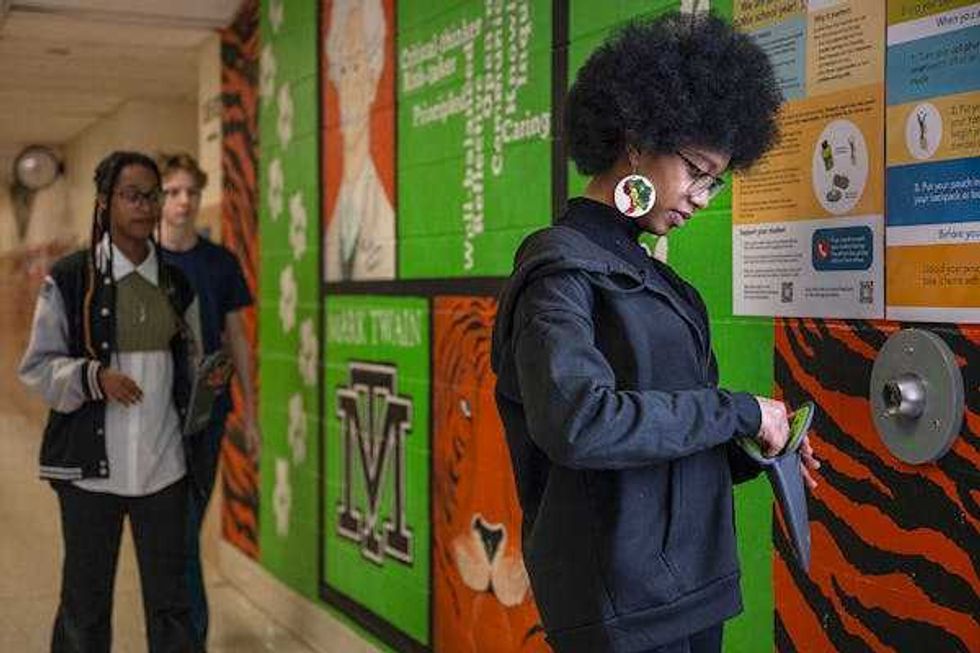 An eighth grader unlocks her cellphone from a pouch at Mark Twain Middle School in Alexandria, Va., in March 2025.
An eighth grader unlocks her cellphone from a pouch at Mark Twain Middle School in Alexandria, Va., in March 2025.
 Gif of a mom wiping her child's dirty face via
Gif of a mom wiping her child's dirty face via 
 A woman holds a family member's hand in the hospitalCanva
A woman holds a family member's hand in the hospitalCanva A bird flying across the sky under the sunCanva
A bird flying across the sky under the sunCanva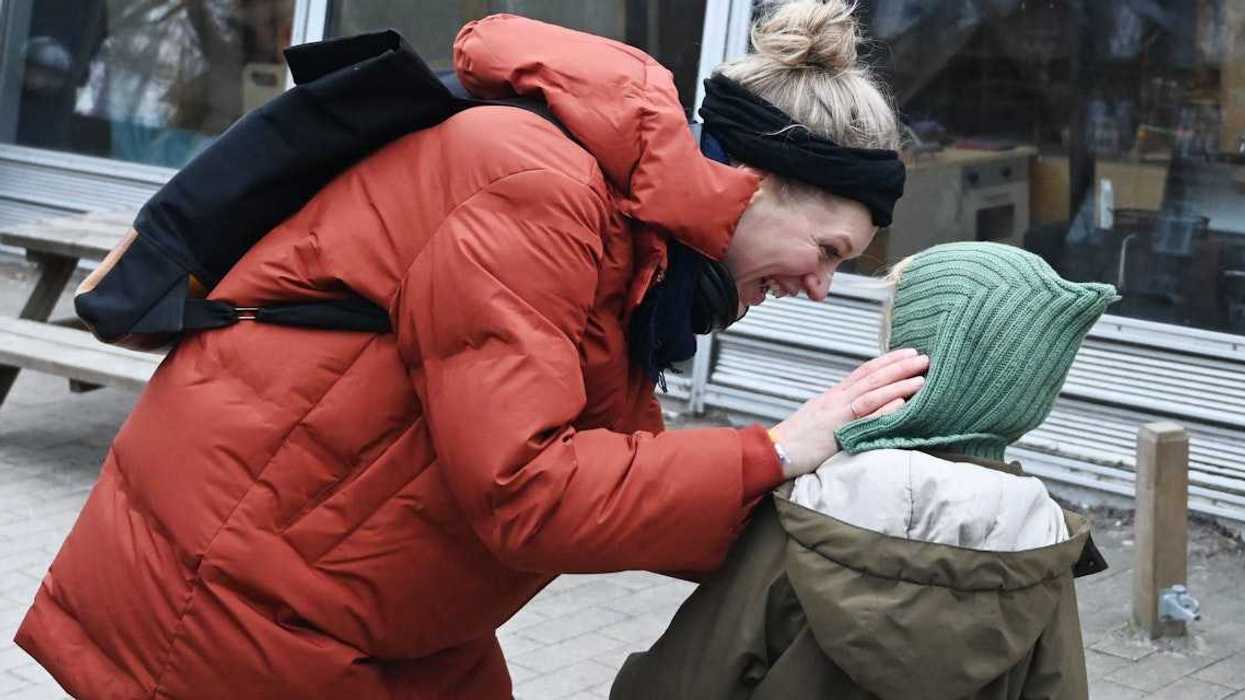
 The ‘motherhood penalty’ is largest in the first year after a mom’s first birth or adoption.
The ‘motherhood penalty’ is largest in the first year after a mom’s first birth or adoption. 


 (LEFT) Film premiere at ArcLight Theatre Hollywood; (RIGHT) LaNasa signing autographs at TIFF.thepaparazzigamer/
(LEFT) Film premiere at ArcLight Theatre Hollywood; (RIGHT) LaNasa signing autographs at TIFF.thepaparazzigamer/  Radical acceptance.Photo credit:
Radical acceptance.Photo credit: 
 Scott Galloway in Barcelona in 2025.Photo credit: Xuthoria/
Scott Galloway in Barcelona in 2025.Photo credit: Xuthoria/  Resting in the shade of a tree.Photo credit:
Resting in the shade of a tree.Photo credit:  Two people thinking.Photo credit:
Two people thinking.Photo credit: 